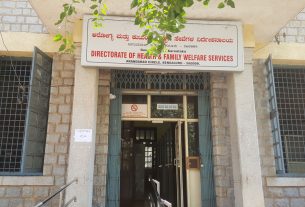The Industry says regulation in Internet-of-things (IoT) will kill innovation in the sector
Bangalore, March 13, 2018: Internet and telecom industries are calling for a relaxed regulation and licensing framework for the IoT (internet-of-things) sector in the National Telecom Policy 2018 due later this year.
TRAI in its consultation paper that came out in February 2018 was bullish on licensing and regulation. It prescribed a licensing and regulatory framework for IoT service providers. It also aims to earmark licensed and unlicensed spectrum for IoT services. Various stakeholders such as telecom service providers, industry associations consulting firms say this will curb innovation in the sector.
The Centre for Internet and Society (CIS), a Bangalore-based technology think tank, said in its comments to TRAI, “While an overarching data protection and security legislation needs to be in place, the suggestion of a “licensing and regulatory framework for IoT/ M2M service providers” is worrying, and there is no suitable rationale for having licensing in this space, which will only serve to curb innovation.”
Similar views were expressed by several prominent organizations such as internet-giants Microsoft India and Cisco, industry associations such as Internet and Mobile Association of India (IAMAI) and US-based The App Association, and phone-giants such as Vodafone.
CIS also said it was worrying that the regulator was establishing a “licensing and regulatory framework for cloud service providers” given cloud service providers are not subjected to any licensing requirements and the move could kill innovation in this sector.
Most of the stakeholders who TRAI sought comments from want a light-touch regulatory framework— minimal regulation. Vishnu Ram OV, Technical Consultant, whose comments TRAI sought, said there are two schools of thought on regulatory frameworks, “If you believe a light-touch framework is a free-for-all and therefore want to have strong regulation to incentivize certain groups you want a tougher framework. If you believe people have good intentions and want to foster an environment of startups and new directions you want a light-touch regulatory framework. Personally, I prefer a light-touch framework for IoT.”
The stakeholders are concerned as IoT will be front and center in the policy. One of the twin goals of the policy is to propel India to become the front-runner in fourth industrial revolution—which the TRAI says is largely due IoT services. Aruna Sundararajan, Telecom Secretary, had said that some key themes of the policy will be regulatory and licensing framework and the absorption of new technologies such as 5G and IoT.
The way the policy shapes up will have far-reaching effects simply due to the size of the Indian telecom sector. TRAI in its consultation paper said the Indian telecom sector is the second largest in the world in terms of phone users at 1.2 billion users in October 2017. India also has the world’s second-largest internet subscriber base at 340 million in October 2017.
Prof. Rakesh Mehrotra, Professor of Communications Engineering at Sharda University, Noida, who has been a part of various committees of the planning commission in the past, called for an umbrella policy for information and communication technologies (ICT) that can harmonize various sectoral policies such as the telecom policy, spectrum policy, electronics manufacturing policy, software development policy, cyber security policy, and so on. He explained that any policy—including the upcoming telecom policy— will not harmonize with other policies if it is made in isolation.
The consultation paper has views from preliminary discussions between TRAI and various stakeholders such as telecom service providers, industry associations, consulting firms and so on. The reactions from the consultation paper—which can be viewed as a pre-draft version of the policy—will be factored into the draft version of the policy being formulated by the Department of Telecommunications (DoT), Ministry of Communications.




